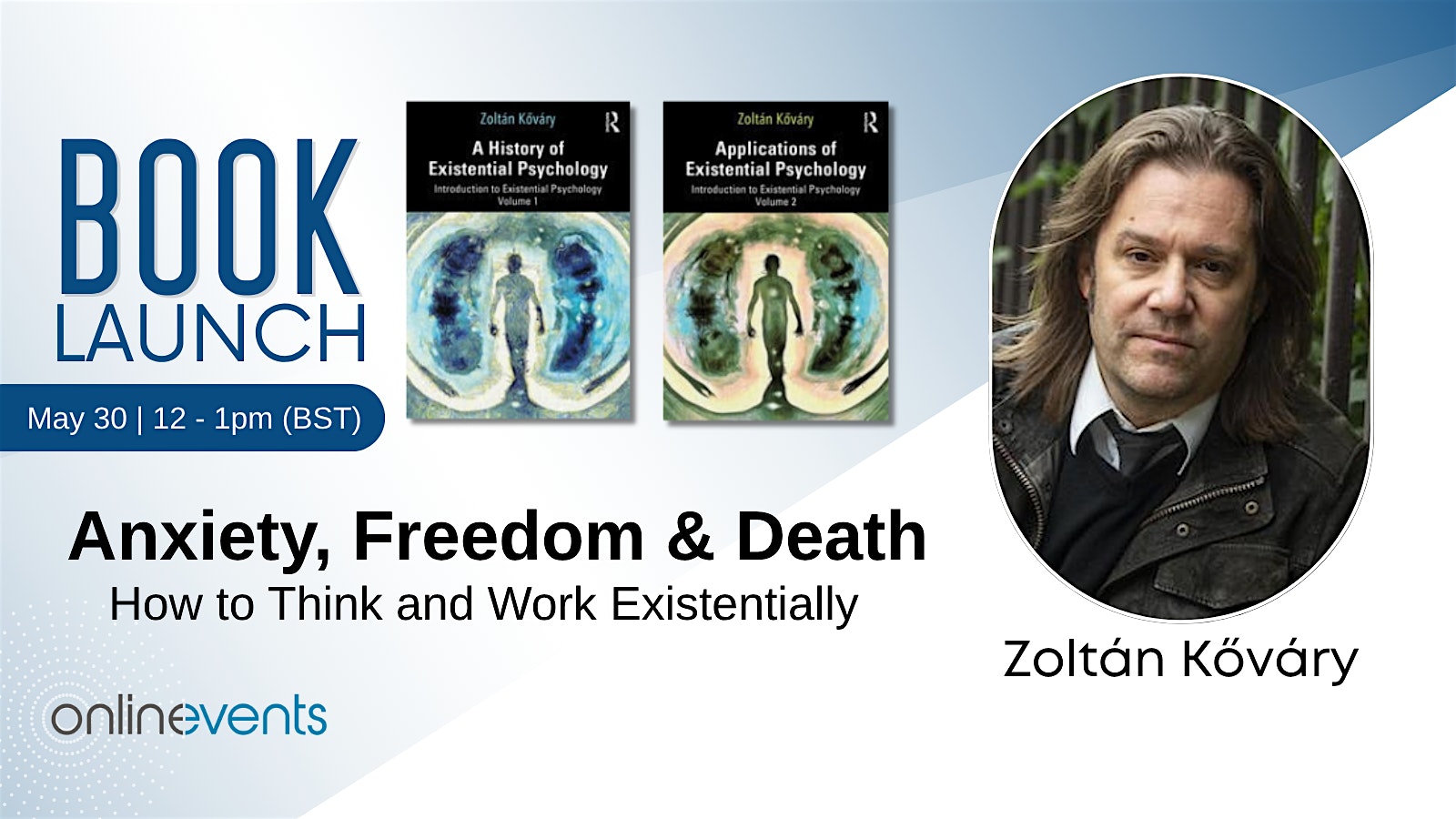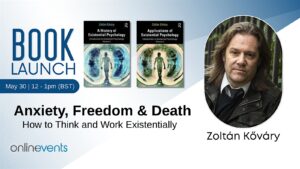About this event
In this online discussion and book launch the author’s interlocutor is going to be Tamás Fazekas MD, an Austrian Daseinsanalyst, the co-founder of American and Hungarian Daseinsanalytic society. Beside talking about the book they will focus on the practical application of existential approach in self-knowledge, the interpretation and understanding everyday life and therapy/counselling. The most important topics they will emphasize during this talk are anxiety, freedom and death, and how to find personal meaning by working on these heavy weight themes with clients and ourselves.
Zoltan Kovary Phd, associate professor and clinical psychologist has released his double volume book at Routledge called “A History of Existential Psychology: Introduction to Existential Psychology vol 1” and “Applications of Existential Psychology: Introduction to Existential Psychology vol 2”. The first volume discusses all the philosophical, literary and psychological/psychiatric roots and antecedents of existential psychology and the four basic schools’ (Daseinsanalysis, Logotherapy and Existential Analysis, Existential-Humanistic and Existential-Phenomenological Schools) history, basic ideas, the works of the most important founding fathers and contemporary representatives. As an important innovation, Kovary is intending to make Hungarian-Swiss Leopold Szondi’s “fate analysis” as a “lost central European school of existential psychology” the part of this story. The second volume on the one hand is about the most important topics of existential approach (“conditio humana”) including anxiety, freedom, choices, authenticity, suffering, meaning, time, death, creativity and spirituality, and it’s application in dream analysis, the interpretation of mental suffering and in therapy/counselling. In the final part of the book the author is discussing 21st century developments and their relation to existential psychology.
Link to Books:
A History of Existential Psychology: Introduction to Existential Psychology vol 1 | https://www.routledge.com/A-History-of-Existential-Psychology-Introduction-to-Existential-Psychology-Volume-1/Kovary/p/book/9781032703077
Applications of Existential Psychology: Introduction to Existential Psychology vol 2 | https://www.routledge.com/Applications-of-Existential-Psychology-Introduction-to-Existential-Psychology-Volume-2/Kovary/p/book/9781032701790
ZOOM
This event will be hosted on the Zoom meeting platform where we will use our cameras and microphones to interact with each other as a group.
___________________________
At Onlinevents, we and the presenters we collaborate with are committed to working in a way that aligns with the ethical codes and frameworks of our respective professional organisations. We expect all colleagues attending our events to uphold the ethical principles of their professional membership.
If you are not a member of a professional organisation, we ask that you participate in a way that is both authentic and respectful, fostering a space of mutual learning and professional engagement.
By registering for this event, you agree to be present and interact in a manner that reflects these principles.
Zoltan Kovary, PhD.

Zoltan Kovary PhD is a Hungarian clinical psychologist, logotherapy and existential analysis consultant, literary scholar and linguist. He is working as an associate at Eötvös Loránd University, Institute of Psychology, Budapest, Hungary, and also runs a private practice. His doctoral thesis was about the psychoanalytic interpretation of artistic creativity, and in connection with this he has been dealing with psychobiography as a research method for years. In 2019 he co-edited the 500 pages long “New Trends in Psychobiography” with Claude-Helene Mayer which was published by Springer International. Kovary’s most important research topics beside creativity and psychobiography are the history and theory of existential and depth psychologies; his main work in this field is the two volume and 800 pages long “Introduction to Existential Psychology” published by Routledge in 2024. He is also the author of almost one hundred articles and book chapters in Hungarian and English Language.



